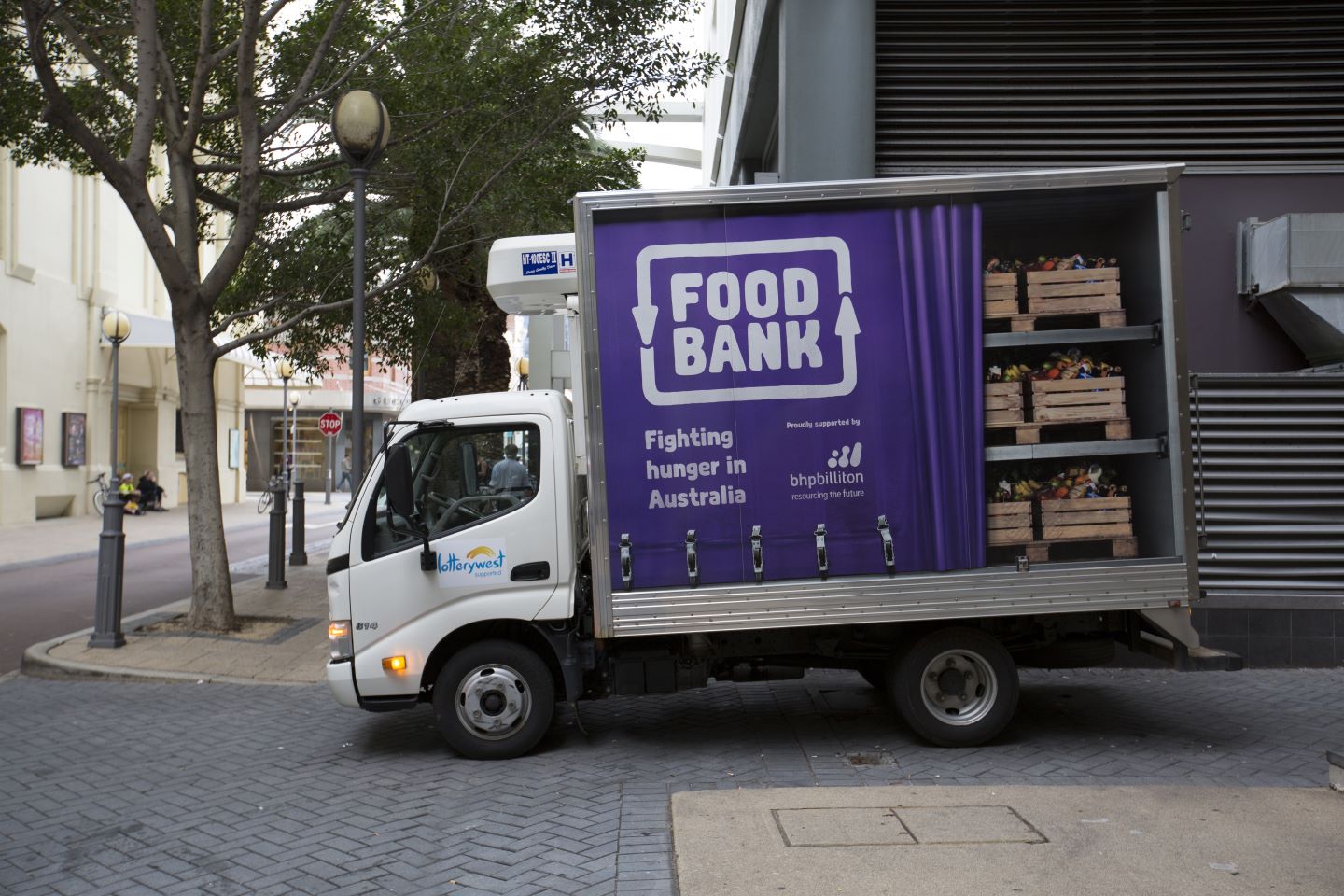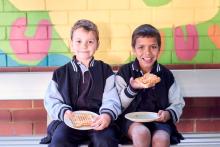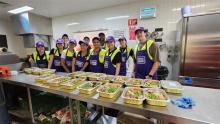The state has to do better to address food stress and the growing issue of food insecurity in WA, Foodbank WA’s CEO Kate O’Hara explains.


The state has to do better to address food stress and the growing issue of food insecurity in WA, Foodbank WA’s CEO Kate O’Hara explains.
“Our communities have struggled for long enough. We produce more food than we need in this state and we can’t seem to make affordable and healthy food available for all.
"With our cost of living rising and inflation outpacing wage growth, more people are walking through our doors across the state than ever before.”
Ms O’Hara is urging the state government to prioritise a holistic food strategy which includes tackling the root causes of food insecurity while expanding funding for relief efforts.
“We are hoping the upcoming elections will bring stronger commitments to addressing the growing issue of our overall food system – supply, logistics, distribution, access and affordability,” she said.
“We advocate for systemic changes to address the underlying factors contributing to food insecurity. These include affordable housing policies, increased welfare payments, social housing income caps and measures to address unemployment and underemployment.
"Improving economic stability at the household level is critical to reducing reliance on emergency food relief.
“We support the Raise the Rate Campaign," she said.
 Foodbank WA's CEO, Kate O'Hara, advocates for increasing welfare payments to help people meet their basic living costs.
Foodbank WA's CEO, Kate O'Hara, advocates for increasing welfare payments to help people meet their basic living costs.
“In addition, we believe that greater collaboration between government, businesses, and the nonprofit sector is achievable and reduced food waste alongside redistributing surplus food is part of the solution. Legislative incentives for businesses to donate excess food and invest in logistics for food rescue operations are high on the list of priorities in our space.
“Without significant action, the rising demand for food assistance coupled with a decline in donated supply, will continue to strain already stretched resources, leaving many vulnerable people without access to essential nutrition. Addressing food insecurity is not just about relief but changing our food systems to create long-term solutions for community resilience.”
Anglicare WA's CEO, Mark Glasson, echoed that housing and income support are top priorities in the upcoming elections. “Our major asks for the upcoming election include cost-of-living relief and decent income for a fair life for everybody," Mr Glasson said.
“The state government has made some really positive moves to address the housing crisis – with significant investment in homelessness response, emergency relief, and housing supply. The foundations and the focus are there, but the government needs to be bolder in response to the housing crisis.
“We’re still well short of the level of support we could, and should, be giving to struggling members of our community,” he said.
Foodbank’s 2024 Hunger Report showed that, in WA, 370,000 households experienced food insecurity in the last 12 months, with almost 200,000 households experiencing severe food insecurity in the same timeframe, and one in five people in the state facing days without food.

The number of people relying on Foodbank is growing year on year with the cost-of-living crisis.
“We have to do better to address food stress,” Ms O’Hara said. “Food is a basic human right. We need consistent, effective support to those most vulnerable in the Western Australian community.
“Part of the immediate strategy to address food stress is to address the root causes of food insecurity, including affordable housing, wage growth, utility bills including power bills, along with affordable medical and dental costs. Without addressing these, food insecurity will persist,” she said.
“Providing substantial and long-term funding to tackle food insecurity is essential and urgent. The importance of government support for essential services like food distribution, particularly in the regions where distance and cost are a huge barrier to healthy and nutritious food cannot be underestimated."
Food waste reduction initiatives are essential to incentivise businesses and farmers to redirect surplus food from waste to those in need. “While the Senate economics committee rejected the Bill that would have brought the National Food Donation Tax Incentive to life, we need to find another way,” Ms O’Hara said.
“Investment in infrastructure to enhance our capacity to store, transport and distribute food efficiently and partnerships to ensure consistent access to nutritious and culturally appropriate food.”
ABC Gives provides ongoing support for nutrition education in regional Western Australia
More than half a million dollars was generously donated to Foodbank WA for people facing food insecurity, thanks to the ABC Gives campaign by listeners of ABC Radio Perth and WA.
The $573,000 raised will help support Western Australians experiencing food stress as well as delivering nutrition education to regional Western Australia.
As part of this, Foodbank WA is partnering with WA Country Health Service to continue to provide nutrition education programs across the state. Since 2011, WA Country Health Service has delivered Foodbank WA’s nutrition education and cooking programs, previously known as Food Sensations.
"These programs have been a powerful tool to help support families, teens and adults to make nutritional food choices and empower people of all ages to afford, prepare and eat health meals. Healthy eating is a really important part of ensuring children get a great start in life, and supports their learning and overall wellbeing and health," Foodbank WA CEO Kate O'Hara said.
The Foodbank WA nutrition education and cooking programs - nom! – will be delivered by WA Country Health Service teams to adults, youth, schools and parents. These programs are tailored to be meaningful and relevant in each community, considering cost-of-living issues and food availability.
"Foodbank WA is excited to continue this important program with thanks to those who supported ABC Gives. The nom! programs build participant’s confidence and capacity on how to select, prepare and eat tasty healthy food, minimise waste and be able to better balance their own food budgets," she said.
“The nom! programs will see pragmatic and useful life skills provided to thousands of Western Australians. These additional programs will give regional residents the opportunity to improve their knowledge, skills and confidence around health eating.”













